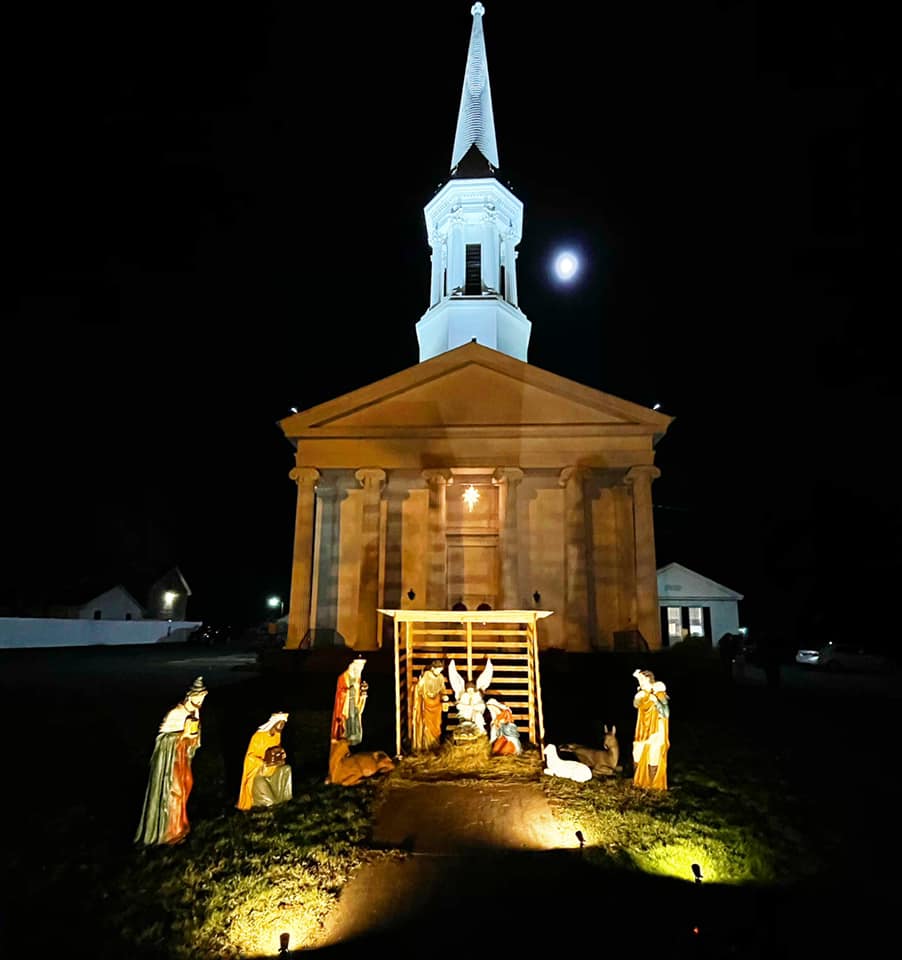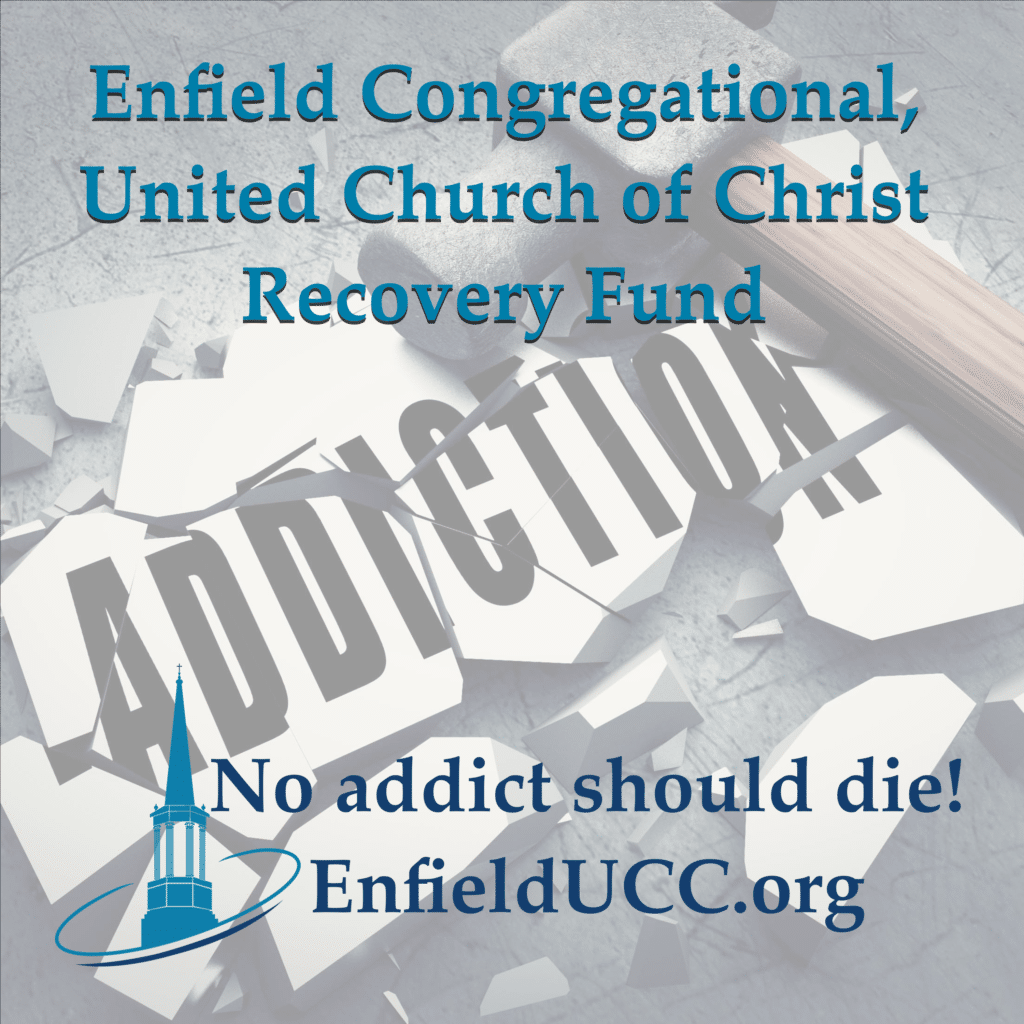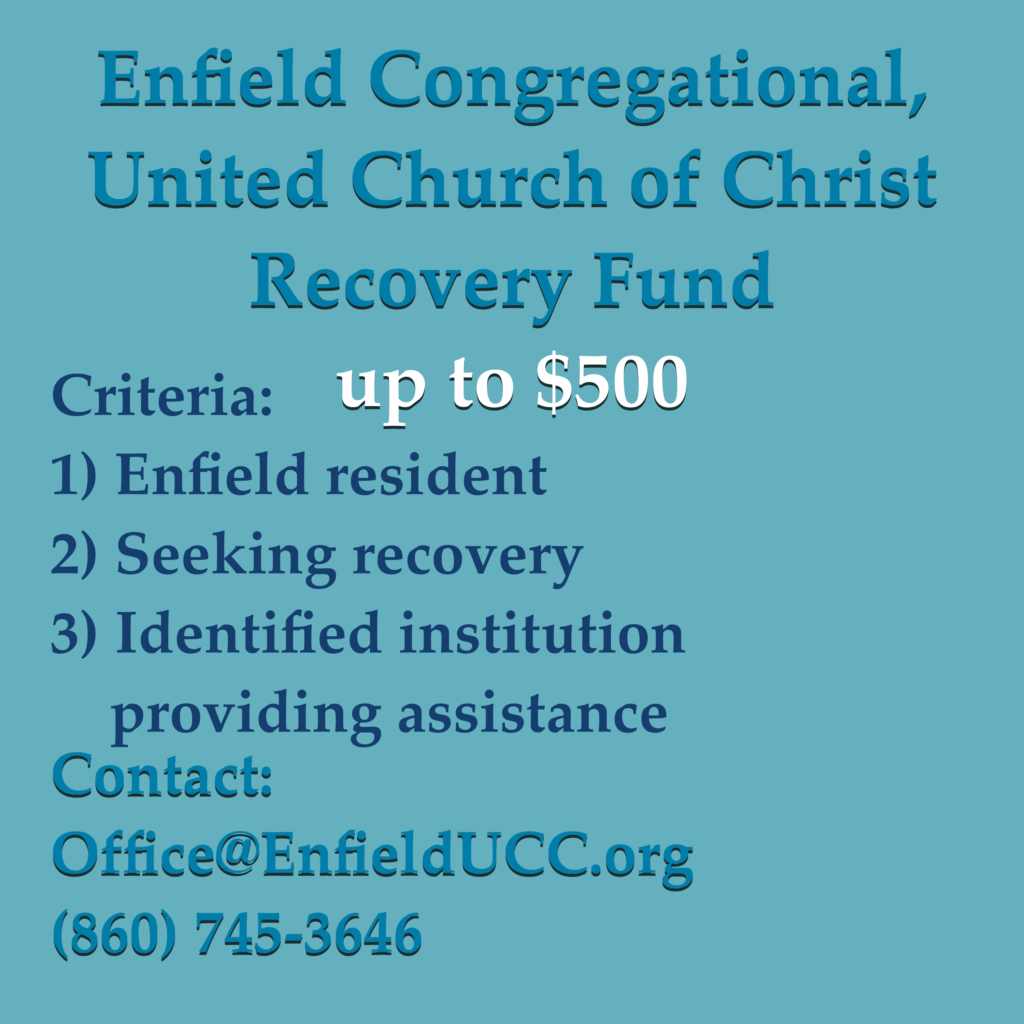Seeing COVID’s addiction pressures, Conn. church gives people grants to encourage recovery
When he interviewed as a candidate at Enfield Congregational United Church of Christ last year, the Rev. Greg Gray was, he said, “very open about my recovery.”
Since calling him as pastor last winter, the congregation has made fighting addiction its latest ministry in this northern Connecticut town. Gray’s personal knowledge of recovery, plus a generous bequest from a longtime member, are making it possible.
The church is offering up to $500 to help any Enfield resident enter a verified recovery program at a halfway house, sober house, detox center, rehab hospital or similar institution.
Its Recovery Fund was launched Nov. 1, seeded with $10,000 – a portion of a bequest left by a recently deceased member. Individuals are also starting to donate to the fund.
It all comes at a time when the affects of addiction are, for some people, heightened by the coronavirus pandemic. The American Medical Association, for example, proclaimed its worry this fall about “reports of increases in opioid and other drug-related overdose and other concerns” and urged specific actions by state governors and legislators.
‘COVID has affected everything’
Gray led Sunday worship in Enfield for the first time in March. Four days later, the church, like many, closed its building as a COVID-19 precaution. It has been meeting online ever since.

Launching a new outreach fund in those circumstances has its challenges, Gray said – but those same circumstances are why it’s needed. Isolation, he said, can endanger some people who live with addictions. Specific local statistics can be hard to come by, partly because of the anonymity of recovery programs and the stigma people can feel about reporting addiction.
But Gray – himself in recovery for 15 years and closely connected with the addiction treatment community – knows it’s true.
“COVID has really affected everything,” he said. “As things began to shut down here in New England because of the pandemic, all of the recovery meetings and 12-step meetings were displaced. They adapted fairly rapidly and moved online.
“But for the newcomers, those not already connected with AA or another recovery group – getting them to find a Zoom meeting, rather than be able to walk into a church basement somewhere, was a real problem. Isolation has started just killing people. Just anecdotally, I know the uptick in people dealing with addiction who have died because they didn’t have that kind of support system has been incredible.”
‘You have to be seeking recovery’
People with any kind of addiction can apply by downloading a simple, one-page form from Enfield Congregational’s website and submitting it directly to Gray, who ensures the process is confidential. He then sends an appropriate payment directly to the agency where the person enrolls.
“You have to be seeking recovery,” Gray said. “If you already have 3 months, 6 months, 9 months clean and you need help with your light bill, that’s not what this is for. We cut the check to the facility, not the addict.”
Many factors affect how much $500 will cover, Gray said. “If you’re going to a state facility, the state’s going to foot the bill for almost everything and the $500 should cover your expense,” he said. “If you’re going to a privately run rehab facility, then that’s not even a drop in the bucket.
“The other variable is, does the person have insurance? This $500 could be covering your copay. If your copay is $250, then we’ll cut a check for $250 to wherever you’re going. You might be going to a group home like a halfway house, so this might pay first month’s rent.”
Postcards at package store
Word is getting out through the church’s social media channels, news outlets and a decidedly non-digital method: postcards. The local agencies and businesses that are helping to distribute them range from a program serving children and families to places that sell liquor.
“I’m going to put a stack of them next to the cash register at the local package store,” Gray said. “People need to see it who are not reading the newspaper or are not looking at social media.”
The one person the fund has helped so far came as a referral from a local rehab center, which Gray had told about the grants. He hopes to see more applicants as the program gets more publicity, including an article that appeared Dec. 2 in Enfield’s community edition of the Hartford Courant.
“It will take time, because there still is stigma,” Gray said. “For us to get the word out into the community, we have to fight against that stigma, where people don’t want to talk about it.”
Addiction can affect anyone
The Recovery Fund joins a list of ministries run or supported by Enfield Congregational. Local ones including a clothing resale shop, the Enfield Loaves and Fishes food program, a community emergency loan fund, and a ministry to the homeless in nearby Springfield, Mass.
The congregation has embraced the added project partly because addiction can affect anyone, Gray said. “I am willing to say that there is not a family inside the church, outside the church in the community of Enfield or anywhere else that addiction has not touched – husbands, wives, grandchildren, nieces, nephews, cousins, somebody. Seeing this as part of the ministry of the church has been a natural outgrowth of who these people are.”
“I believe strongly in community engagement in all forms,” he said. “I think that for a church to be relevant to its community, it has to see the different kinds of demographic groups and reach out to all of them. This is one of those.”
Related News
A Prophetic Call for Justice and Peace in Palestine
The executive leaders of the United Church of Christ have issued the following statement...
Read More‘Love is Greater Than Fear’: Regional Youth Events get to the heart of gospel message
United Church of Christ teens attending this summer’s Regional Youth Events (RYE) are...
Read MoreUCC desk calendars available to order now
Prepare for your day, month and year with the United Church of Christ desk calendar —...
Read More



